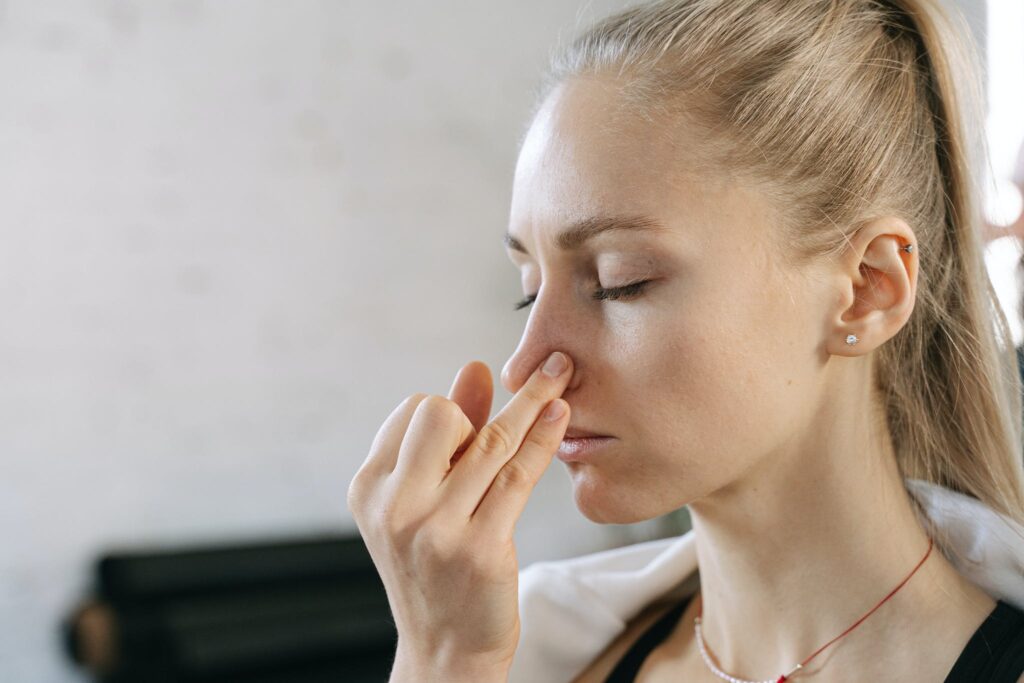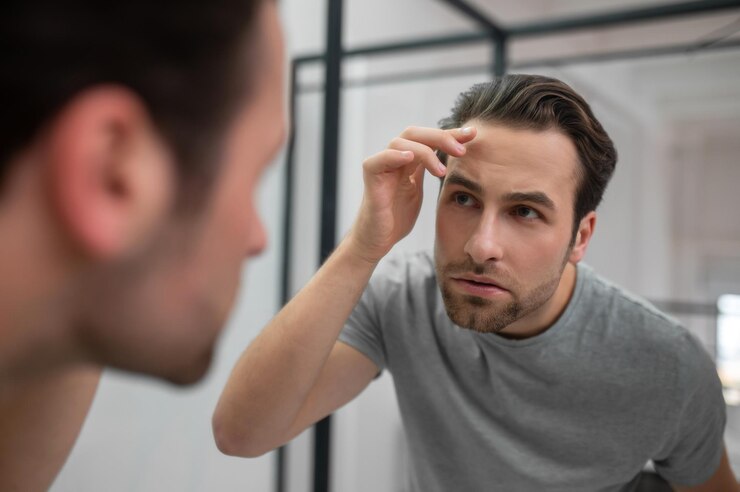Mental Wellness and Men’s Sexual Confidence: A Comprehensive Guide

Understanding the Link between Mental Wellness and Sexual Confidence in Men

Mental wellness and sexual confidence are closely interconnected in men, with one greatly influencing the other. When a man experiences mental health issues such as depression, anxiety, or stress, it can significantly impact his sexual confidence and performance. On the flip side, low sexual confidence can also contribute to mental health issues, creating a vicious cycle that can be challenging to break.
Research has shown that mental health conditions can lead to a myriad of sexual problems in men. For instance, depression has been linked to a decrease in libido, erectile dysfunction, and difficulties in orgasm. Anxiety, on the other hand, can generate performance anxiety, making it challenging to achieve and maintain an erection. Moreover, high-stress levels can disrupt the hormonal balance in the body, affecting sexual desire and function.
Understanding this link between mental wellness and sexual confidence is crucial in addressing these issues comprehensively. By recognizing that mental well-being impacts sexual confidence and vice versa, men can seek appropriate help and support to break the cycle and regain their sexual confidence. Whether through therapy, counseling, or holistic approaches, it is essential to address both mental health and sexual confidence to achieve overall well-being and satisfaction.
Exploring the Impact of Stress and Anxiety on Sexual Confidence

Stress and anxiety are common experiences in today’s fast-paced and demanding world, and they can have a significant impact on many aspects of our lives, including our sexual confidence. When we are stressed or anxious, our bodies release stress hormones such as cortisol, which can interfere with our ability to feel relaxed and aroused. In fact, research has shown that high levels of stress and anxiety can lead to erectile dysfunction, premature ejaculation, and a decrease in sexual desire.
Furthermore, stress and anxiety can affect our self-esteem and body image, which are crucial factors in sexual confidence. When we are feeling stressed or anxious, we may become more self-conscious and critical of our bodies, leading to negative thoughts and feelings about ourselves. This can create a vicious cycle, as low self-esteem and body image issues can further contribute to stress and anxiety, creating a self-perpetuating cycle of negative emotions.
It’s important to recognize the impact that stress and anxiety can have on our sexual confidence and take steps to manage these feelings. Engaging in stress-reducing activities such as regular exercise, mindfulness meditation, and deep breathing exercises can help to lower stress levels and promote relaxation. Additionally, seeking therapy or counseling can be beneficial in helping to address underlying issues, learn coping strategies, and improve overall well-being.
In conclusion, it is crucial to acknowledge the link between stress, anxiety, and sexual confidence. By understanding the impact that these factors can have on our intimate lives, we can take proactive steps to manage stress, improve our mental well-being, and enhance our sexual confidence. By nurturing a healthy relationship with ourselves and seeking the support and guidance we need, we can overcome the challenges posed by stress and anxiety and enjoy a fulfilling and confident sexual life.
Techniques for Managing Performance Anxiety and Improving Sexual Confidence

Performance anxiety can have a significant impact on a man’s sexual confidence, but there are techniques that can help manage this anxiety and improve overall sexual well-being. One such technique is deep breathing exercises. Deep breathing can help calm the mind and relax the body, reducing anxiety and promoting a sense of inner calmness. Taking slow, deep breaths in through the nose and out through the mouth can help lower heart rate and blood pressure, alleviating the physical symptoms of anxiety that can hinder sexual performance.
Another technique for managing performance anxiety is cognitive restructuring. This involves identifying and challenging negative thoughts and beliefs that contribute to anxiety and replacing them with more balanced and positive thoughts. For example, instead of thinking, “I always fail in bed,” one can reframe the thought to, “Mistakes happen, and I can learn from them.” By reframing negative thoughts, individuals can shift their mindset and build self-confidence, enhancing their sexual performance.
In addition to these techniques, it can be beneficial to practice mindfulness during intimate moments. Mindfulness involves being fully present and engaged in the present moment, without judgment. By focusing on sensations, emotions, and the connection with a partner, individuals can let go of performance-related worries and instead enjoy the experience. Mindfulness can help individuals relax, improve communication, and deepen intimacy, all of which can contribute to increased sexual confidence.
Managing performance anxiety and improving sexual confidence is a journey that requires practice and patience. These techniques, along with open communication with a partner and seeking professional help if needed, can lead to enhanced sexual well-being and a greater sense of confidence in the bedroom. It is important to remember that sexual confidence is not solely based on performance but also on emotional intimacy and the overall connection with a partner.
The Role of Self-esteem and Body Image in Men’s Sexual Confidence
Self-esteem and body image play significant roles in men’s sexual confidence. It is important to understand that self-esteem refers to one’s overall evaluation of their self-worth and body image relates to how individuals perceive and feel about their physical appearance. When it comes to sexual confidence, these factors can greatly impact a man’s level of comfort and satisfaction in intimate situations.
Low self-esteem and negative body image can lead to feelings of insecurity and self-doubt, which can ultimately hinder sexual confidence. Men who have low self-esteem may struggle with feelings of inadequacy and worry about their ability to please their partner. Similarly, a negative body image can cause men to feel self-conscious and uncomfortable, leading to a lack of confidence in their own sexual abilities.
Research has shown that there is a clear connection between self-esteem, body image, and sexual confidence. A study conducted by J. Law Smith and colleagues (2011) found that men with higher levels of self-esteem and positive body image reported higher levels of sexual satisfaction and confidence in the bedroom. Conversely, men with low self-esteem and negative body image reported lower levels of sexual satisfaction and confidence.
It is important to address and improve self-esteem and body image concerns in order to enhance sexual confidence. This can be achieved through various techniques such as therapy, counseling, and self-reflection. By working on building a positive self-image and developing healthy self-esteem, men can improve their overall sexual confidence and satisfaction. It may also be beneficial to seek support from professionals who specialize in body image issues or self-esteem building.
In conclusion, self-esteem and body image play pivotal roles in men’s sexual confidence. It is crucial to address any negative thoughts or beliefs that may be impacting one’s self-esteem and body image. By doing so, individuals can cultivate a healthier mindset and ultimately improve their sexual confidence, leading to more fulfilling intimate experiences.
Addressing Common Mental Health Issues that Can Affect Sexual Confidence
When it comes to sexual confidence, it’s important to recognize that mental health issues can have a significant impact. Common mental health issues such as anxiety, depression, and stress can affect a person’s self-esteem, body image, and overall well-being, all of which can in turn impact sexual confidence.
Anxiety, in particular, can be a major barrier to sexual confidence. It can manifest as performance anxiety, causing worry and fear about sexual performance and leading to difficulties in arousal or maintaining an erection. Anxiety can also contribute to a negative body image and self-consciousness, making it difficult to fully enjoy and engage in sexual experiences.
Depression, on the other hand, can cause a lack of interest or pleasure in activities, including sex. It can also lead to feelings of worthlessness or low self-esteem, making it challenging to feel confident and desirable in the bedroom. Additionally, the fatigue and lack of energy often associated with depression can further impact sexual desire and performance.
Certainly! Here’s a table summarizing common mental health issues that can affect sexual confidence and strategies for addressing them:
| Mental Health Issues Affecting Sexual Confidence | Description | Strategies for Addressing |
|---|---|---|
| Depression | Diminished pleasure, low energy, and feelings of inadequacy impacting sexual confidence. | – Seek professional help for therapy or counseling. |
| – Open communication with a partner about feelings and concerns. | ||
| – Consider medication under the guidance of a healthcare professional. | ||
| Anxiety Disorders | Performance anxiety, fear of rejection, or general anxiety affecting sexual confidence. | – Cognitive-behavioral therapy for anxiety management. |
| – Gradual exposure to sexual situations in a supportive environment. | ||
| – Mindfulness and relaxation techniques. | ||
| Body Image Concerns | Negative perceptions of one’s body leading to self-consciousness and reduced sexual confidence. | – Focus on self-acceptance and positive body image. |
| – Engage in activities that promote a healthy body image, such as exercise or self-care. | ||
| – Communicate with a partner about insecurities and seek reassurance. | ||
| Performance Anxiety | Worry about sexual performance leading to stress, self-doubt, and decreased sexual confidence. | – Establish open communication with a partner to alleviate pressure. |
| – Focus on shared pleasure and intimacy rather than performance metrics. | ||
| – Gradual exposure to sexual situations to build confidence. | ||
| Relationship Issues | Difficulty in communication, unresolved conflicts, or emotional distance impacting sexual confidence. | – Couples therapy to address underlying relationship issues. |
| – Open and honest communication about sexual needs and desires. | ||
| – Quality time together to strengthen emotional intimacy. | ||
| Post-Traumatic Stress Disorder (PTSD) | Trauma-related anxiety impacting sexual confidence and intimacy. | – Trauma-focused therapy to address underlying issues. |
| – Sensate focus exercises to rebuild trust and connection with a partner. | ||
| – Creating a safe and supportive environment for intimacy. |
Building Emotional Intelligence for Enhanced Sexual Confidence
Emotional intelligence plays a crucial role in enhancing sexual confidence. It involves being aware of our own emotions and those of our partners, and effectively managing them in order to foster a healthy and fulfilling sexual relationship. By developing emotional intelligence, individuals can improve their communication skills, empathy, and self-awareness, all of which contribute to a more satisfying sexual experience.
One important aspect of building emotional intelligence for enhanced sexual confidence is cultivating effective communication skills. Open and honest communication about desires, boundaries, and concerns allows partners to establish mutual understanding and can help to alleviate anxiety or misunderstandings in the bedroom. Additionally, active listening and empathy can enhance emotional connection and intimacy, fostering a stronger emotional bond between partners.
Furthermore, self-awareness plays a critical role in building emotional intelligence. Understanding one’s own emotions, needs, and preferences can lead to better self-advocacy and assertiveness in the bedroom. Individuals who are more in tune with their own desires and boundaries are better able to communicate them to their partners, resulting in a more satisfying sexual experience.
Overall, developing emotional intelligence is an invaluable tool for enhancing sexual confidence. By improving communication skills and nurturing self-awareness, individuals can create a more satisfying and fulfilling sexual relationship with their partners.
The Connection between Communication Skills and Sexual Confidence
Good communication skills are essential for healthy relationships, and this holds true in the realm of sexual intimacy. Communication plays a crucial role in sexual confidence, as it allows partners to express their desires, boundaries, and concerns openly and effectively. When individuals are able to communicate their needs and expectations clearly, it fosters trust, builds intimacy, and enhances overall sexual satisfaction.
One study conducted by researchers at the University of Texas found that couples who reported higher levels of sexual satisfaction also reported higher levels of communication about their sexual desires and preferences. Effective communication can help individuals overcome barriers such as performance anxiety, body image issues, and relationship difficulties, which can all impact sexual confidence. By openly discussing these concerns, couples can work together to find solutions and explore new ways to enhance their sexual experience.
Nurturing Healthy Relationships for Optimal Sexual Confidence
In nurturing healthy relationships, couples can enhance their overall sexual confidence and satisfaction. A strong emotional connection and effective communication lay the foundation for fulfilling sexual experiences. A study conducted by the Journal of Sex & Marital Therapy found that couples who feel emotionally connected and secure with each other are more likely to have higher levels of sexual satisfaction and confidence [1].
Effective communication is crucial in maintaining a healthy relationship and promoting sexual confidence. Open and honest conversations about desires, boundaries, and expectations can lead to a deeper understanding of each other’s needs and preferences. Dr. Laura Berman, a renowned relationship therapist, emphasizes the importance of clear communication and says, “Having the ability to talk openly and honestly about your sexual needs, fantasies, and concerns creates a safe and trusting space for both partners to explore and grow sexually [2].
References:
[1] Willoughby, B. J., & Vitas, J. (2012). Sexual satisfaction and sexual expression as predictors of relationship satisfaction and stability. Journal of Sex & Marital Therapy, 38(5), 436-457.
[2] Berman, L. (n.d.). 5 Keys to a Healthy Sexual Relationship. Retrieved July 20, 2021, from https://drlauraberman.com/laura-bermans-5-keys-to-a-healthy-sexual-relationship
Exploring the Role of Pornography in Men’s Sexual Confidence
Pornography has become increasingly accessible in today’s digital age, and its influence on men’s sexual confidence is a topic worth exploring. It is important to note that the effects of pornography on sexual confidence can vary greatly from person to person, and individual experiences may differ. However, research suggests that excessive consumption of pornography can potentially impact one’s perception of sexual performance and body image.
One study published in the journal Sexual Medicine found that men who frequently viewed pornography reported lower sexual self-esteem compared to those who did not consume pornography as frequently. This may be attributed to the unrealistic expectations set by the performers in adult films, which can create a sense of inadequacy and pressure for men to live up to these exaggerated standards. Furthermore, pornography often depicts a narrow range of body types and sexual acts, leading some men to feel insecure or dissatisfied with their own bodies and sexual experiences.
It is also important to recognize that extensive consumption of pornography can contribute to the development of problematic sexual behaviors and attitudes. A meta-analysis conducted by the Journal of Sex Research revealed a positive association between greater pornography use and increased sexual aggression. Although this association does not suggest a cause-and-effect relationship, it highlights the need for individuals to reflect upon their consumption patterns and how it aligns with their own values and desires. By further understanding the potential impact of pornography on sexual confidence, individuals can make informed decisions about their own consumption habits and seek healthier ways to cultivate sexual confidence.
The Influence of Media and Cultural Factors on Men’s Sexual Confidence
Media and cultural factors play a significant role in shaping men’s sexual confidence. From an early age, men are bombarded with unrealistic portrayals of masculinity and sexuality through various forms of media, including movies, television shows, and advertisements. These portrayals often emphasize physical appearance, sexual performance, and the objectification of women, creating an unattainable standard of sexual prowess that can negatively impact men’s confidence in their own abilities.
According to a study published in the Journal of Sex Research, exposure to media representations of male sexual performance can lead to feelings of inadequacy and performance anxiety in men. The study found that men who regularly consumed media content depicting idealized sexual encounters were more likely to experience self-doubt and lowered self-esteem, which in turn affected their sexual confidence.
Furthermore, cultural norms and beliefs surrounding masculinity can also contribute to the erosion of men’s sexual confidence. Societal expectations often dictate that men should be assertive, dominant, and always ready for sexual activity. This pressure to conform to societal ideals can create anxiety and self-doubt in men who may feel they are falling short of these expectations.
It is important to recognize the influence of media and cultural factors on men’s sexual confidence and take steps to counteract their negative impact. By promoting realistic and diverse representations of masculinity and sexuality in the media, we can help men develop a healthier and more positive sense of self. Additionally, open and honest conversations about sexual health, body image, and societal expectations can also empower men to challenge and redefine harmful stereotypes, ultimately leading to improved sexual confidence and overall well-being.
Strategies for Overcoming Erectile Dysfunction and Restoring Sexual Confidence
Erectile dysfunction (ED) is a common condition that can significantly impact a man’s sexual confidence and overall psychological well-being. However, there are strategies and treatments available that can help overcome this issue and restore sexual confidence. One of the first steps in addressing ED is understanding its underlying causes.
Many factors can contribute to the development of erectile dysfunction, including physical health issues, such as cardiovascular disease or diabetes, psychological factors like stress and anxiety, and lifestyle choices like smoking or excessive alcohol consumption. It is essential to undergo a thorough medical evaluation to identify any underlying health conditions that might be contributing to ED.
Once the underlying causes have been identified, there are various treatment options available. Medications such as phosphodiesterase-5 inhibitors (PDE5is) like Viagra, Cialis, or Levitra have been shown to be effective in treating ED. These medications work by increasing blood flow to the penis, allowing for an erection.
In addition to medication, psychological interventions can also play a crucial role in overcoming ED. Cognitive-behavioral therapy (CBT), for example, can help address any negative thoughts or beliefs that might be contributing to performance anxiety or erectile difficulties. Couples therapy can also be beneficial in improving communication and addressing relationship issues that might be impacting sexual confidence.
In some cases, lifestyle changes can make a significant difference in restoring sexual confidence. Regular exercise, a healthy diet, and maintaining a healthy weight can improve overall cardiovascular health and decrease the likelihood of developing ED. Quitting smoking and reducing alcohol consumption can also have positive effects on sexual function.
It’s important to note that seeking professional help, such as consulting with a urologist or a sexual health specialist, is crucial in developing an effective treatment plan for overcoming erectile dysfunction. They can provide personalized guidance and recommendations based on an individual’s specific needs.
Overall, there are various strategies and treatments available for overcoming erectile dysfunction and restoring sexual confidence. By addressing the underlying causes, seeking appropriate medical and psychological interventions, and making lifestyle changes, men can regain their sexual confidence and improve their overall well-being. Remember, it’s essential to consult with a healthcare professional for personalized guidance and support.
Exploring the Benefits of Therapy and Counseling for Men’s Sexual Confidence
Therapy and counseling can play a crucial role in enhancing men’s sexual confidence. By addressing underlying psychological factors, these interventions can help individuals overcome barriers that may be hindering their sexual well-being. Therapy and counseling provide a safe and supportive environment for men to explore their thoughts, emotions, and concerns related to sexual confidence.
One of the key benefits of therapy and counseling is the opportunity for individuals to gain a deeper understanding of the root causes of their sexual confidence issues. Trained professionals can help men identify any past traumas, relationship dynamics, or societal pressures that may be impacting their sexual confidence. By addressing these underlying factors, therapy and counseling can help men develop healthier attitudes towards sex and their own bodies. This increased self-awareness and understanding can contribute to improved sexual confidence and overall well-being.
It is important to note that therapy and counseling approaches vary, and what works for one individual may not work for another. Therefore, it is crucial for men to find a therapist or counselor who specializes in sexual health and has experience in working with men’s sexual confidence concerns. A professional in this field can provide personalized treatment plans that are tailored to the specific needs and goals of each individual.
In addition to addressing psychological factors, therapy and counseling can also provide practical strategies and techniques for managing performance anxiety and improving sexual confidence. This may include exercises to enhance mindfulness and relaxation, communication skills training, and exploring healthy coping mechanisms for stress and anxiety. These evidence-based approaches can empower men to take control of their sexual confidence and cultivate greater satisfaction and fulfillment in their intimate relationships.
Overall, therapy and counseling can be invaluable resources for men seeking to enhance their sexual confidence. These interventions provide a safe and confidential space to explore and address underlying psychological factors, as well as practical strategies for improving sexual well-being. By seeking professional support, men can embark on a journey of self-discovery and growth that can lead to enhanced sexual confidence and overall mental well-being.
The Role of Physical Fitness and Overall Well-being in Sexual Confidence
Physical fitness and overall well-being play a crucial role in sexual confidence for men. Engaging in regular exercise not only improves physical health but also positively impacts mental well-being, leading to enhanced sexual confidence. Studies have shown that individuals who engage in regular physical activity experience reduced levels of anxiety, stress, and depression, all of which can significantly impact sexual confidence.
Exercise has been found to stimulate the release of endorphins, also known as “feel-good” hormones, which can boost mood and improve overall well-being. Furthermore, regular physical activity improves cardiovascular health, increases blood flow, and enhances overall stamina, all of which are fundamental in achieving and maintaining sexual confidence.
According to a study published in the Journal of Sexual Medicine, individuals who were physically active reported higher levels of sexual desire, satisfaction, and performance compared to those with a sedentary lifestyle. The study also highlighted the role of exercise in reducing erectile dysfunction, a common concern that heavily impacts sexual confidence.
Taking care of one’s overall well-being is equally important. This includes adopting healthy lifestyle habits such as getting enough sleep, managing stress levels effectively, and maintaining a balanced diet. Adequate sleep allows the body to replenish and recharge, leading to improved energy levels and overall vitality. Managing stress through relaxation techniques, such as deep breathing exercises or meditation, can also have profound effects on sexual confidence.
Adopting a balanced diet rich in fruits, vegetables, whole grains, lean proteins, and healthy fats provides the necessary nutrients for optimal sexual function. For instance, foods high in antioxidants, such as berries and dark chocolate, have been linked to improved blood flow, a critical factor in sexual performance.
In conclusion, prioritizing physical fitness and overall well-being is crucial for enhancing sexual confidence in men. Engaging in regular exercise, adopting healthy lifestyle habits, and maintaining a balanced diet are all essential components of this equation. By taking care of one’s body and mind, individuals can experience improved sexual satisfaction, performance, and overall well-being.
Techniques for Enhancing Sexual Confidence through Mindfulness and Meditation
Enhancing sexual confidence can be achieved through various techniques, and one promising approach is the practice of mindfulness and meditation. Mindfulness involves being fully present in the moment and accepting one’s thoughts, feelings, and sensations without judgment. By incorporating mindfulness into sexual experiences, individuals can cultivate a deeper connection with their own bodies and sensations, leading to increased confidence and satisfaction.
Research has shown that mindfulness can have a positive impact on sexual functioning and satisfaction. A study published in the Journal of Sex & Marital Therapy found that mindfulness-based interventions significantly improved sexual desire, arousal, and overall sexual satisfaction in both men and women. This suggests that cultivating a mindful approach to sexual experiences can enhance confidence and enjoyment.
Meditation, on the other hand, focuses on training the mind to achieve a state of calm and clarity. By practicing meditation regularly, individuals can learn to quiet their inner thoughts and reduce anxiety and stress, which are common barriers to sexual confidence. In fact, a study published in the Journal of Sexual Medicine found that mindfulness meditation significantly reduced sexual distress and improved sexual function in individuals with sexual arousal disorder.
Incorporating mindfulness and meditation into one’s daily routine can have profound effects on overall well-being and sexual confidence. As with any practice, consistency is key. Allocating a few minutes each day to engage in mindful breathing, body scanning, or guided meditation exercises can gradually increase self-awareness, reduce stress, and improve sexual confidence. Additionally, seeking guidance from a qualified mental health professional or attending mindfulness-based therapy sessions may provide further support and guidance on this journey towards enhanced sexual confidence.
Promoting Positive Self-talk and Positive Affirmations for Improved Sexual Confidence
Positive self-talk and positive affirmations can play a significant role in improving sexual confidence in men. The way we talk to ourselves and the beliefs we hold about our abilities can greatly impact our sexual experiences. Engaging in positive self-talk involves replacing negative thoughts and beliefs with more positive and empowering ones.
One technique for promoting positive self-talk is to challenge and reframe negative thoughts. For example, instead of thinking, “I’m not good enough in bed,” one can reframe it as, “I am capable of pleasuring my partner and enjoying myself.” This shift in thinking can help build confidence and create a more positive mindset.
Additionally, using positive affirmations can be a helpful tool in cultivating a sense of sexual confidence. Affirmations are positive statements that we repeat to ourselves, such as “I am a skilled and confident lover” or “I deserve pleasure and satisfaction.” By consistently reinforcing these affirmations, individuals can boost their self-esteem and reinforce positive beliefs about their sexual abilities.
Research has shown that practicing positive self-talk and affirmations can improve overall well-being and self-confidence. In the context of sexual confidence, these techniques can help reduce anxiety, enhance body image perceptions, and foster a more positive and satisfying sexual experience. It is important to note that while positive self-talk and affirmations can be effective tools, they are not a substitute for addressing underlying emotional or psychological issues. Seeking professional guidance from a therapist or counselor can provide additional support in addressing any deeper concerns.
What is self-talk and how does it relate to sexual confidence?
Self-talk refers to the internal dialogue that a person has with themselves. It plays a crucial role in shaping one’s beliefs and attitudes, including sexual confidence. Positive self-talk involves replacing negative thoughts with encouraging and empowering ones, which can greatly improve sexual confidence.
How can positive affirmations affect sexual confidence?
Positive affirmations are statements that reinforce positive beliefs and create a more positive mindset. By repeating affirmations such as “I am confident in my sexuality” or “I deserve pleasure and satisfaction,” individuals can boost their sexual confidence and overcome self-doubt.
Can self-esteem impact sexual confidence in men?
Yes, self-esteem plays a significant role in sexual confidence. Men with low self-esteem may struggle with feeling worthy or desirable, which can hinder their sexual confidence. Building self-esteem through self-acceptance and self-care can help improve sexual confidence.
Can therapy or counseling help improve sexual confidence in men?
Yes, therapy or counseling can be beneficial for men struggling with sexual confidence issues. A trained professional can provide support, guidance, and techniques to address underlying psychological factors and develop strategies for improving sexual confidence.
Are there any techniques to enhance sexual confidence through mindfulness and meditation?
Yes, mindfulness and meditation can improve sexual confidence by helping individuals focus on the present moment, reducing anxiety, and promoting self-acceptance. Techniques such as deep breathing exercises and mindful body scanning can be used to enhance sexual confidence.
How does physical fitness and overall well-being impact sexual confidence?
Physical fitness and overall well-being contribute to sexual confidence by promoting a positive body image and increasing stamina and energy levels. Regular exercise, a healthy diet, and self-care practices can all positively influence sexual confidence.
Can communication skills affect sexual confidence in men?
Yes, effective communication skills are vital for sexual confidence. Being able to express desires, boundaries, and concerns with a partner can foster trust, intimacy, and overall sexual satisfaction, ultimately boosting sexual confidence.
What role does pornography play in men’s sexual confidence?
Pornography can both positively and negatively impact sexual confidence. While it may provide inspiration or education for some individuals, excessive consumption of pornography can create unrealistic expectations and negatively affect self-esteem and sexual confidence.
How do media and cultural factors influence men’s sexual confidence?
Media and cultural factors can shape societal expectations and standards, which may impact men’s sexual confidence. Unrealistic portrayals of masculinity, body image ideals, or societal pressure can contribute to self-doubt and affect sexual confidence.
Are there strategies to overcome erectile dysfunction and restore sexual confidence?
Yes, strategies such as seeking medical advice, exploring different treatment options, and practicing relaxation techniques can help overcome erectile dysfunction and restore sexual confidence. Open communication with a partner and professional guidance can also be beneficial.
What are some common mental health issues that can affect sexual confidence in men?
Mental health issues such as depression, anxiety, or past trauma can impact sexual confidence in men. Seeking appropriate mental health support and treatment can help address these underlying issues and improve sexual confidence.
How can nurturing healthy relationships contribute to optimal sexual confidence?
Nurturing healthy relationships based on trust, communication, and mutual respect can create a safe and supportive environment for sexual exploration and intimacy. A satisfying and fulfilling relationship can boost sexual confidence in men.
Are there any additional techniques for managing performance anxiety and improving sexual confidence?
Yes, techniques such as practicing relaxation exercises, focusing on pleasure rather than performance, and setting realistic expectations can help manage performance anxiety and improve sexual confidence. Openly discussing concerns with a partner can also alleviate anxiety.
How can individuals address body image issues that may impact their sexual confidence?
Addressing body image issues involves cultivating self-acceptance and focusing on self-care rather than comparing oneself to unrealistic ideals. Engaging in activities that promote self-confidence and seeking support from professionals or support groups can be beneficial.






